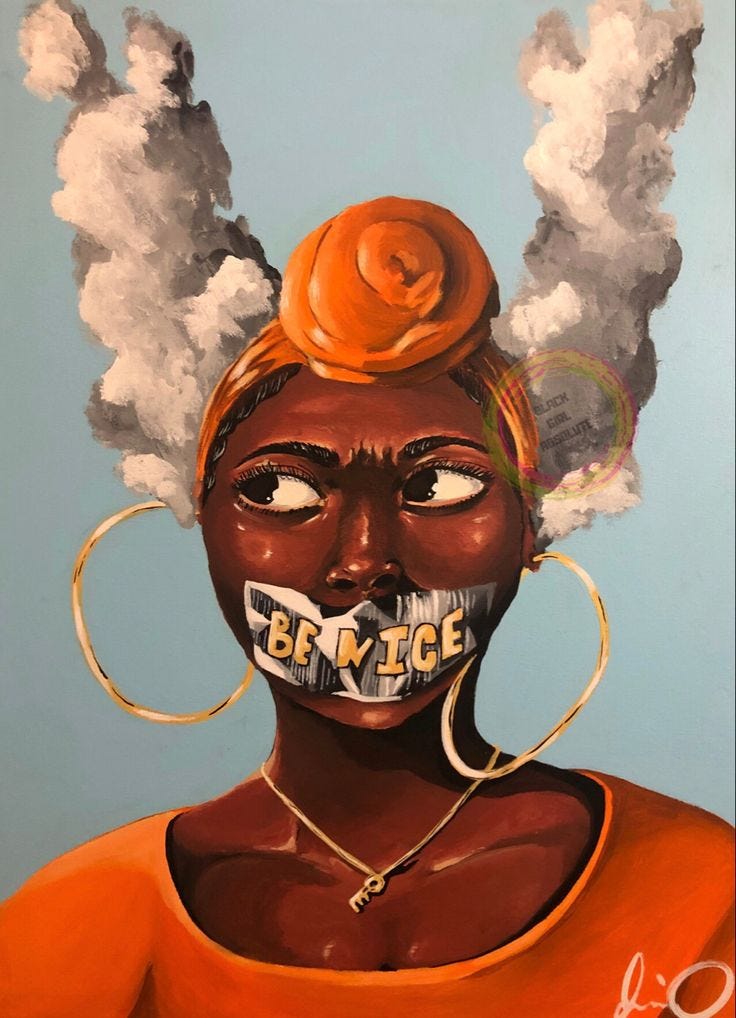Unmasking the Illusion of Closeness for Autistics
Have you ever felt uneasy when someone you barely know calls you ‘sis,’ ‘bro,’ or ‘auntie’?
These words may seem harmless, but they can also be a calculated tactic to create false intimacy—especially for those of us on the autism spectrum, who take words literally.
Overfamiliarity is not always genuine—it is often a strategy. It can be used in workplaces, friendships, and cultural spaces to gain access to your time, energy, and resources without earning trust.
In This Episode, We Break Down:
✔ The psychology behind overfamiliarity and why people use it
✔ How workplaces manipulate employees with “we’re family” rhetoric
✔ The cultural impact of terms like “auntie” or “queen”
✔ Practical strategies to protect your boundaries and energy
🛑 If you’ve ever felt pressured into emotional labor or questioned someone’s sudden closeness, this episode is for you.
🎙️ Episode Breakdown (Timestamps)
00:00 – Introduction: Understanding Overfamiliarity
00:56 – The Psychology Behind Overfamiliarity
01:49 – Workplace Manipulation Tactics
02:30 – Personal Relationships and Overfamiliarity
03:51 – Cultural Examples of Overfamiliarity (Feat. Ava DuVernay’s Insight)
05:09 – Protecting Yourself from Manipulation
05:58 – Setting Boundaries and Discernment
06:47 – Final Thoughts
The Psychology Behind Overfamiliarity
Humans naturally seek belonging, connection, and access to resources. Instead of putting in the time to build genuine trust, some people fast-track relationships by using language that signals closeness.
This works because our brains associate familiarity with safety. When someone uses family-oriented language, it lowers our defenses—making us more likely to offer support, share resources, or overlook red flags.
Overfamiliarity is especially common in spaces where power dynamics exist—such as workplaces, friendships, and cultural settings.
Workplace Overfamiliarity: The Illusion of “Work Family”
Many companies tell employees they are “part of the family.” But in reality, this is often a manipulative strategy to make workers emotionally invested without giving them real security.
Why do companies use “work family” rhetoric?
To make you work harder for less. Employees who feel like “family” often tolerate lower pay and poor working conditions.
To blur professional boundaries. If you feel obligated to your “work family,” you’re more likely to sacrifice personal time, mental health, and emotional well-being.
To make you easier to replace. The moment you burn out, become sick, or demand better treatment, the same workplace that called you “family” will replace you without hesitation.
🔹 A workplace is not a family. It is a professional environment. The moment you forget that, you open yourself up to exploitation.
Personal Relationships: When False Closeness is a Red Flag
The same overfamiliarity tactics happen in friendships, social circles, and personal relationships.
⚠️ Ever had someone you barely know start calling you “sis” or “bro”—then quickly ask for favors?
⚠️ Ever noticed people using familiar language when they want access to your time, money, or emotional labor?
⚠️ Ever had a family member guilt you into doing something, using phrases like, “But we’re family”?
For autistic individuals, who take language at face value, this manipulation can be particularly disorienting and exhausting.
If someone fast-tracks closeness without proving their intentions through consistent actions, take a step back and reassess.
Cultural Overfamiliarity: When Community Language is Used to Manipulate
In Black and Brown communities, overfamiliarity is often used strategically.
🔹 Terms like “auntie,” “queen,” or “big bro” are sometimes genuine expressions of respect and affection.
🔹 But they can also be used as a social shortcut to secure mentorship, financial support, or professional opportunities.
Ava DuVernay on Overfamiliarity
Ava DuVernay famously addressed this when she said: “Don’t call me auntie if I don’t know you.”
This had nothing to do with age and everything to do with boundaries. She noticed that people used “auntie” as a shortcut to access her platform, connections, and expertise. Instead of earning proximity, they name-dropped their way in.
🔹 This is a form of social engineering. Over time, you learn to recognize when someone is genuinely connecting versus when they are using community language as a tool of access.
How to Protect Yourself from Overfamiliarity & Manipulation
Trust actions over affectionate words.
If someone rushes intimacy, pause and ask: “Why now?”Scrutinize people’s intentions.
Have they consistently shown up for you, or does their closeness feel situational?Practice directness.
If someone is using false closeness, ask them: “What is it that you actually want?”This one question alone exposes hidden motives.
Define your personal boundaries.
Overfamiliarity is not a free pass to your time, energy, or generosity.
People who value you will respect your boundaries, not try to bypass them.
Give access based on earned trust.
Not everyone deserves a seat at your table.
Let people earn proximity through consistent actions, not just familiar words.
Final Thoughts: Curating Your Own Social Boundaries
Language is powerful, but words alone do not build trust. Overfamiliarity is often a tactic to fast-track access without proving genuine care.
If someone calls you “sis” or “bro,” but their actions do not match their words, pay attention. Words mean nothing without consistency and integrity.
Your time, energy, and emotional investment are valuable. The right people will respect that. The wrong people will try to fast-track their way into your space.
Choose who gets access wisely.
More insights are coming soon. Stay tuned for the next episode.
Lovette Jallow is a 9 time award-winning author, speaker, and advocate specializing in neurodiversity, intersectionality, and human rights. As a Black autistic queer disabled woman, she has built one of Scandinavia’s largest separatist networks for Black women while championing equity and mutual care within marginalized communities. Lovette uses her platform to challenge societal norms, empower others, and redefine what authentic, inclusive communities look like.
Learn more about Lovette’s work at www.lovettejallow.com.
















Share this post